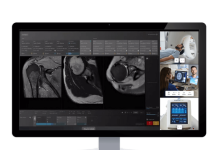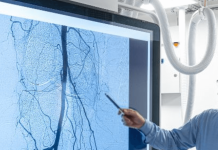Novocure received regulatory approval in Japan for its Optune Lua wearable device.
Japan’s Ministry of Health, Labour and Welfare (MHLW) approved Optune Lua for concurrent use with PD-1/PD-L1 inhibitors. It offers treatment for adult patients with unresectable advanced/recurrent non-small cell lung cancer (NSCLC) who have progressed on or after platinum-based chemotherapy.
Optune Lua, a wearable, portable medical device, produces alternating electric fields called tumor-treating fields (TTFields). Delivered through non-invasive, wearable arrays, TTFields exert physical forces on the electrically charged components of dividing cancer cells. This results in cancer cell death.
Related: AVITA Medical wins CE Mark for RECELL GO, enabling EU commercialisation
At just 2.7 pounds (with a battery), it offers a wearable, portable option for continuing normal daily activities. The company designed it for enhanced carrying comfort and usability.
“Lung cancer is the leading cause of cancer-related death worldwide, and unfortunately, in Japan the number of cases continue to increase, which is why we see an urgent need for innovative treatment options for this disease,” said Frank Leonard, president, Novocure. “Novocure is focused on launching Optune Lua as quickly as possible in Japan so that patients with non-small cell lung cancer experiencing a progression after initial platinum-based treatment have access to our therapy.”
Optune Lua already has FDA approval for treating non-small cell lung cancer (NSCLC), which it picked up in October 2024. It earned CE mark approval for NSCLC about six months later. Novocure submitted it to the FDA for pancreatic cancer last month as well.




